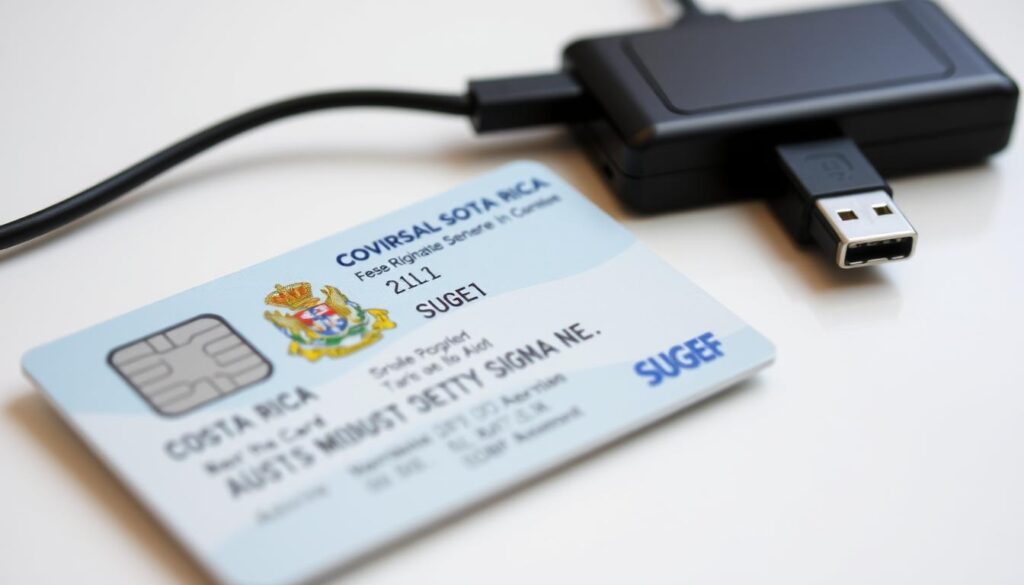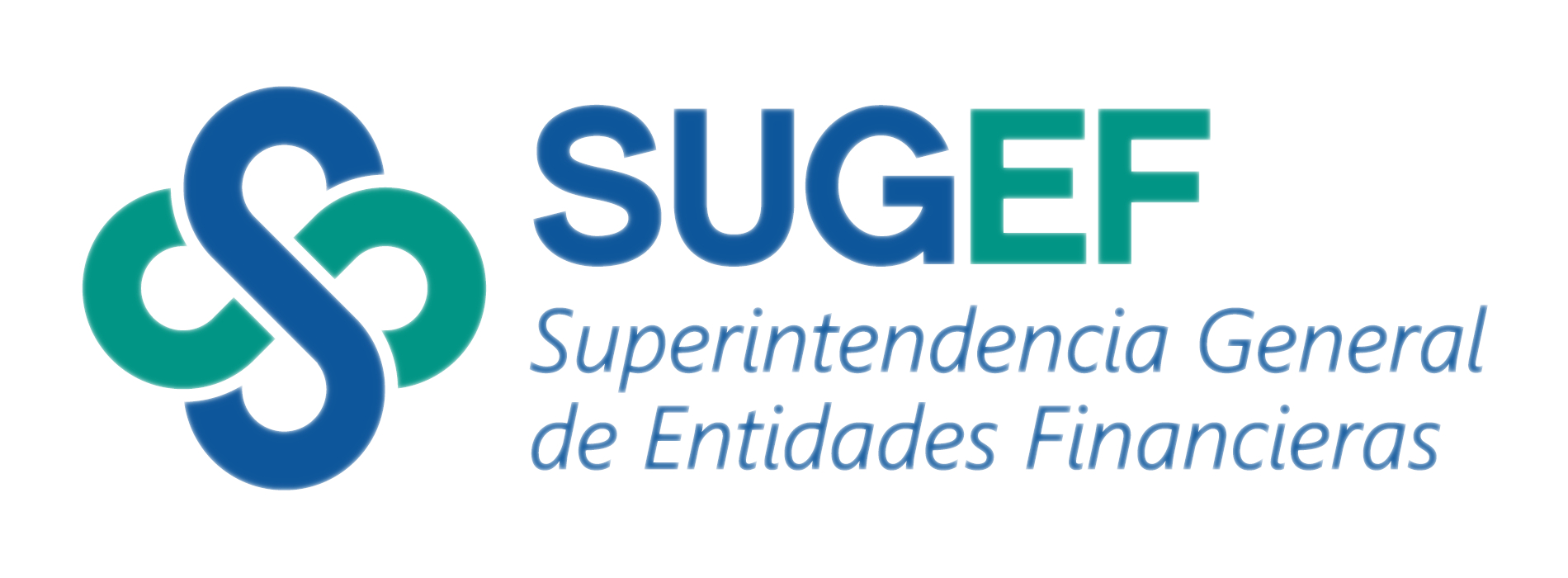What is SUGEF? Understanding Costa Rica’s Financial Regulator
SUGEF (Superintendencia General de Entidades Financieras) is the primary regulatory body overseeing Costa Rica’s financial industry. Its primary objective is to ensure the stability, solidity, and efficient functioning of the national financial system. Similar to FinCEN in the United States or Fintrac in Canada, SUGEF plays a crucial role in monitoring and identifying potential money laundering and terrorism financing activities.
Click here to go to the official SUGEF webpage: www.sugef.fi.cr/
SUGEF’s Core Functions and Responsibilities
- Supervising and regulating financial intermediaries operating in Costa Rica
- Monitoring compliance with anti-money laundering and counter-terrorism financing regulations
- Ensuring the stability and transparency of the Costa Rican financial system
- Protecting clients’ financial interests through regulatory oversight
- Issuing regulations and guidelines for financial entities
SUGEF’s regulatory scope extends to various financial entities, including banks, savings and credit cooperatives, financial firms, foreign exchange firms, and other financial institutions. These entities are fully regulated and monitored by SUGEF to ensure compliance with Costa Rican financial laws and regulations.
Additionally, other persons and businesses, such as private lenders, must complete a registration with SUGEF and maintain basic due diligence policies and procedures to access local banking services. This registration process is essential for operating legally within Costa Rica’s financial system.
SUGEF Registration: Requirements and Process
Who Must Register with SUGEF?
SUGEF registration is mandatory for various entities and individuals operating in Costa Rica’s financial sector. Understanding whether your activities require registration is the first step toward compliance.
Financial Institutions
- Banks (state-owned and private)
- Savings and credit cooperatives
- Non-banking financial companies
- Foreign exchange firms
- Mutual savings and credit entities
Other Regulated Activities
- Private lenders providing credit facilities
- Real estate agents and developers
- Casinos (physical and online)
- Dealers in precious metals and stones
- Pawn shops
- Fiduciary service providers
- Lawyers and accountants handling client funds
Important: Conducting these activities without proper SUGEF registration can result in the closure of bank accounts and reports of suspicious activity to authorities at the bank’s discretion. It’s essential to complete this process before starting operations in Costa Rica.
The SUGEF Registration Process
The registration process with SUGEF involves several steps and requirements. Understanding these requirements is essential for successful registration and compliance.
- Obtain a Firma Digital (Digital Signature) – The first step for many registrants is to obtain a digital signature card since the entire process with SUGEF is done online. Note that Firma Digital is only available to Costa Rican citizens and residents. Non-residents will need to work with a notary public who can perform these duties on their behalf.
- Prepare Required Documentation – Gather all necessary documentation, including identification documents, business registration information, and proof of activities.
- Complete the Online Registration Form – Access the SUGEF online portal and complete the registration form with accurate information about your entity and activities.
- Develop Due Diligence Policies – Create and document basic due diligence policies and procedures that comply with SUGEF requirements.
- Submit Registration and Wait for Approval – Submit your completed registration and wait for SUGEF’s review and approval process.

Consequences of Non-Compliance
Failing to register with SUGEF when required can have serious consequences for individuals and businesses operating in Costa Rica’s financial sector.
Benefits of Compliance
- Legal access to Costa Rican banking services
- Protection from regulatory penalties and fines
- Enhanced credibility with clients and partners
- Reduced risk of account closures or freezes
- Smoother business operations in Costa Rica
Risks of Non-Compliance
- Closure of bank accounts without notice
- Reports of suspicious activity to the authorities
- Significant fines and legal consequences
- Damage to business reputation and credibility
- Inability to operate legally in Costa Rica
Need Help with SUGEF Registration?
Gap Investments can assist you with each step of the SUGEF registration process through an initial consultation and referral to lawyers and notaries specialized in SUGEF registration and ongoing obligations.
Ongoing Obligations for SUGEF-Registered Entities

Registration with SUGEF is just the beginning of your compliance journey. Registered entities are required to fulfill various ongoing obligations to maintain compliance with Costa Rican financial regulations.
Due Diligence and Know Your Customer (KYC) Requirements
SUGEF-registered entities must implement and maintain robust due diligence procedures to prevent money laundering and terrorism financing.
- Client Identification – Verify and document the identity of all clients using reliable, independent source documents.
- Risk Assessment – Develop and implement a risk-based approach to assess the money laundering and terrorism financing risks associated with clients and transactions.
- Enhanced Due Diligence – Apply enhanced due diligence measures for high-risk clients, including politically exposed persons (PEPs) and clients from high-risk jurisdictions.
- Ongoing Monitoring – Continuously monitor client relationships and transactions to ensure consistency with the client’s risk profile and business activities.
- Record Keeping – Maintain accurate records of all client information and transactions for at least five years.
Reporting and Documentation Requirements
SUGEF-registered entities must comply with various reporting and documentation requirements to demonstrate compliance with Costa Rican financial regulations.
| Requirement | Description | Frequency |
| Suspicious Transaction Reports | Report any suspicious transactions or activities that may be related to money laundering or terrorism financing | As needed |
| Registration Updates | Update registration information when there are significant changes to the entity’s structure, ownership, or activities | As needed |
| Policy and Procedure Reviews | Review and update due diligence policies and procedures to ensure continued compliance with SUGEF requirements | Annually |
| Staff Training | Provide regular training to staff on AML/CFT requirements and procedures | Annually |
| Record Retention | Maintain records of all client information, transactions, and compliance activities | Minimum 5 years |
Risk Management and Compliance Monitoring
Effective risk management and compliance monitoring are essential for maintaining SUGEF compliance over time.
- Compliance Officer – Designate a compliance officer responsible for overseeing the entity’s compliance with SUGEF requirements.
- Internal Controls – Implement internal controls to ensure compliance with due diligence and reporting requirements.
- Regular Audits – Conduct regular internal audits to assess compliance with SUGEF requirements and identify areas for improvement.
- Corrective Actions – Take prompt corrective actions to address any compliance deficiencies identified during audits or reviews.
- Technology Solutions – Utilize appropriate technology solutions to support compliance efforts, such as automated screening and monitoring systems.
Pro Tip: Maintaining comprehensive documentation of all compliance activities is crucial for demonstrating compliance during regulatory inspections or audits. Establish a systematic approach to organizing and storing compliance-related documents for easy retrieval when needed.
Taxation for Private Lenders and Financial Entities in Costa Rica

It’s important to understand that SUGEF is not the tax authority in Costa Rica, nor is it connected to local or international taxation. However, financial entities and private lenders operating in Costa Rica must comply with specific tax obligations separate from their SUGEF registration requirements.
Tax Obligations for Private Lenders
Private lenders in Costa Rica must register with the Costa Rican tax agency (Tributación) and declare and pay taxes on earned interest.
For most individual private mortgage lenders in Costa Rica, the interest earned on loans is subject to tax as movable capital gains (Rentas de capital mobiliario), at a rate of 10%, with no deductions. This tax is reported and paid monthly.
Important Note: Interest earned by private lenders is NOT subject to Value Added Tax (VAT, known as “IVA” in Costa Rica).
Tax Registration and Reporting Process
Understanding the tax registration and reporting process is essential for compliance with Costa Rican tax regulations.
- Register with Tributación – Private lenders must register with the Costa Rican tax agency (Tributación) to obtain a tax identification number.
- Monthly Tax Declarations – Submit monthly tax declarations for the 10% tax on interest earned as movable capital gains.
- Payment of Taxes – Pay the declared taxes according to the schedule established by the tax authority.
- Annual Tax Summary – Prepare and submit an annual summary of all monthly tax declarations and payments.
- Record Keeping – Maintain accurate records of all income, tax declarations, and payments for at least four years.
International Tax Considerations
Foreign lenders and financial entities operating in Costa Rica should also consider international tax implications.
- Foreign Tax Credits – If you are subject to tax in your home country, you may be able to use paid Costa Rican taxes as a foreign tax credit.
- USA – IRS Foreign Tax Credit – U.S. taxpayers may claim a credit for income taxes paid to foreign countries, including Costa Rica.
- Canada – CRA Federal Foreign Tax Credit – Canadian taxpayers may claim a credit for income taxes paid to foreign countries, including Costa Rica.
- Tax Treaties – Consider any applicable tax treaties between Costa Rica and your home country that may affect your tax obligations.
- Double Taxation Avoidance – Understand how to avoid double taxation on income earned in Costa Rica and taxed in your home country.

Need Tax Assistance in Costa Rica?
Gap Investments can refer you to qualified tax and accounting professionals in Costa Rica who can manage your accounting, invoicing, and tax preparation at a reasonable cost.
How Gap Investments Can Help with SUGEF Registration and Tax Compliance
Navigating SUGEF registration and tax compliance in Costa Rica can be complex, especially for foreign investors and entities unfamiliar with local regulations. Gap Investments offers comprehensive assistance to help you meet these requirements efficiently and effectively.
Our SUGEF Registration Services
- Initial Consultation – We provide a thorough assessment of your activities to determine SUGEF registration requirements.
- Firma Digital Assistance – We help residents obtain their Firma Digital (digital signature) or set up alternatives for non-residents.
- Document Preparation – We assist with preparing all necessary documentation for SUGEF registration.
- Legal Referrals – We connect you with specialized lawyers and notaries experienced in SUGEF registration.
- Registration Submission – We guide you through the submission process and follow up on your registration status.
Our Tax Compliance Services
- Tax Registration – We assist you in registering with the Costa Rican tax authority (Tributación).
- Monthly Tax Declarations – We assist with preparing and submitting monthly tax declarations.
- Accounting Referrals – We connect you with qualified accountants who can manage your financial records and tax obligations.
- International Tax Guidance – We provide information on foreign tax credits and international tax considerations.
- Ongoing Compliance Support – We offer continuous support to ensure you remain compliant with changing regulations.
For Residents
- Firma Digital acquisition assistance
- Direct SUGEF registration support
- Local tax registration and compliance
- Ongoing regulatory updates and support
For Non-Residents
- Notary public arrangements for registration
- Remote registration process management
- International tax considerations
- Cross-border compliance coordination
Gap Investments has been instrumental in helping us navigate the complex SUGEF registration process. Their expertise saved us a significant amount of time and ensured we remained compliant with all requirements. I highly recommend their services to any financial entity operating in Costa Rica.
Frequently Asked Questions About SUGEF Registration and Taxation
Do foreign lenders need SUGEF registration?
Yes, foreign lenders providing credit facilities in Costa Rica must register with SUGEF if they employ a local financial institution and their lending activity is organized and customary. This registration is necessary to access banking services in Costa Rica and comply with local financial regulations. Non-resident lenders can complete the registration process through a notary public who can act on their behalf.
How is interest taxed for private lenders in Costa Rica?
For most individual private mortgage lenders in Costa Rica, interest earned on loans is subject to tax as movable capital gains (Rentas de capital mobiliario) at a rate of 10%, with no deductions for interest. This tax must be reported and paid monthly to the Costa Rican tax authority (Tributación). Importantly, interest is NOT subject to Value Added Tax (VAT, known as “IVA” in Costa Rica).
What happens if I don’t register with SUGEF when required?
Failing to register with SUGEF when required can result in serious consequences, including the closure of bank accounts, reports of suspicious activity to authorities, significant fines, and legal penalties. Additionally, non-compliance can damage your business reputation and prevent you from operating legally in Costa Rica’s financial sector. It’s essential to determine your registration requirements and complete the process before starting operations.
How long does the SUGEF registration process take?
The SUGEF registration process typically takes between 4 and 8 weeks, depending on the complexity of your business structure and the completeness of your application. This timeline includes obtaining a Firma Digital (for residents), preparing documentation, submitting the application, and waiting for SUGEF’s review and approval. Working with experienced professionals can help streamline the process and prevent delays caused by incomplete or incorrect submissions.
Can I use Costa Rican taxes paid as a credit in my home country?
Yes, if you are subject to tax in your home country, you may be able to use taxes paid in Costa Rica as a foreign tax credit. For example, U.S. taxpayers can claim the IRS Foreign Tax Credit, and Canadian taxpayers can claim the CRA Federal Foreign Tax Credit for income taxes paid to Costa Rica. However, specific rules and limitations apply, so it’s advisable to consult with a tax professional familiar with both your home country’s tax laws and Costa Rican tax regulations.
Does SUGEF actively monitor private lending activities?
Aside from the initial registration, updating your registration, and maintaining basic due diligence policies and procedures, SUGEF doesn’t actively monitor private lending activities as it does with financial institutions. The primary concern is to prevent money laundering and terrorist financing by conducting basic checks on individuals who will participate in economic activities in Costa Rica and ensuring they have established due diligence policies and procedures in place.
What ongoing obligations do I have after registering with SUGEF?
After SUGEF registration, you must maintain compliance with several ongoing obligations, including implementing and maintaining due diligence policies and procedures, updating your registration information when significant changes occur, reporting suspicious transactions, keeping accurate records of all client information and transactions for at least five years, and ensuring staff are trained on compliance requirements. Regular reviews of your compliance program are also recommended to ensure continued adherence to SUGEF requirements.
Still Have Questions?
Our team at Gap Investments is ready to answer any questions you may have about SUGEF registration and taxation in Costa Rica. Contact us today for personalized assistance.
Additional Resources for SUGEF Registration and Taxation
To help you further understand SUGEF registration and taxation requirements in Costa Rica, we’ve compiled a list of valuable resources and official websites.
Official Government Resources
- SUGEF Official Website – Access official information, regulations, and guidelines from the Superintendencia General de Entidades Financieras.
- Ministry of Finance (Ministerio de Hacienda) – Find information about tax regulations, forms, and procedures in Costa Rica.
- Central Bank of Costa Rica (BCCR) – Access information about Costa Rica’s financial system and regulatory framework.
- Firma Digital Costa Rica – Learn about obtaining and using a digital signature for SUGEF registration and other official procedures.
Gap Investments Resources
- SUGEF and Taxation Guide – Our comprehensive guide to SUGEF registration and taxation in Costa Rica.
- Gap Investments Blog – Regular updates and insights on Costa Rican financial regulations and investment opportunities.
- Contact Us – Reach out to our team for personalized assistance with SUGEF registration and tax compliance.
Professional Services in Costa Rica
Legal Services
- Specialized lawyers for SUGEF registration
- Notary public services for non-residents
- Legal consultation on financial regulations
- Compliance program development
Accounting Services
- Tax registration and monthly declarations
- Financial record keeping and reporting
- International tax planning
- Audit preparation and support
Conclusion: Ensuring Compliance with SUGEF and Tax Regulations
Navigating SUGEF registration and taxation requirements in Costa Rica is essential for financial entities and private lenders operating in the country. Compliance with these regulations ensures legal operation, access to banking services, and protection from penalties and legal consequences.
Understanding who needs to register with SUGEF, the registration process, ongoing obligations, and tax requirements is the first step toward compliance. However, the complexity of these regulations often necessitates professional assistance, especially for foreign investors and entities unfamiliar with Costa Rican financial laws.
Gap Investments provides comprehensive support for SUGEF registration and tax compliance, enabling you to navigate these requirements efficiently and effectively. Our team of experts can guide you through every step of the process, from initial consultation to ongoing compliance support.
By ensuring compliance with SUGEF and tax regulations, you can operate with confidence in Costa Rica’s financial sector, focusing on your business objectives while minimizing regulatory risks.
Ready to Ensure Your SUGEF and Tax Compliance?
Contact Gap Investments today for expert assistance with SUGEF registration and tax compliance in Costa Rica. Our team is ready to help you navigate these complex requirements and ensure your business operates legally and efficiently.

